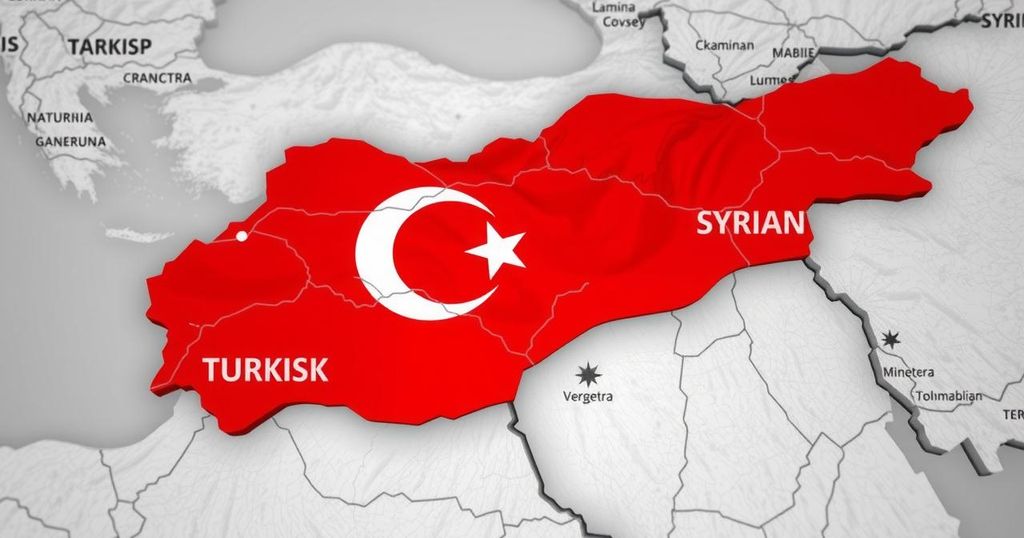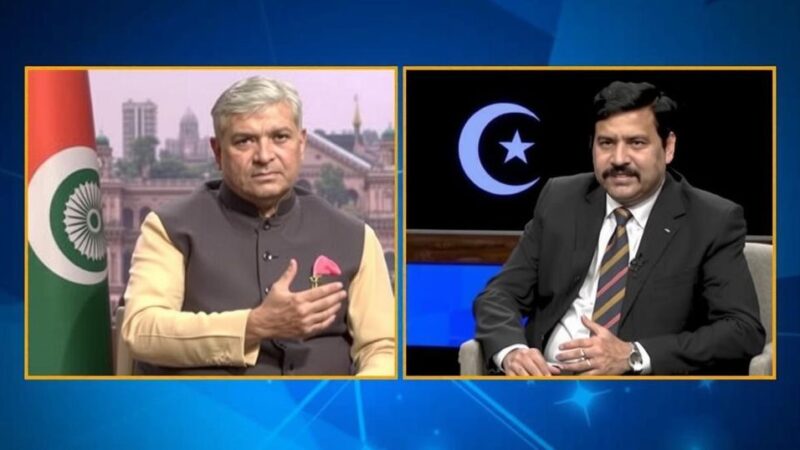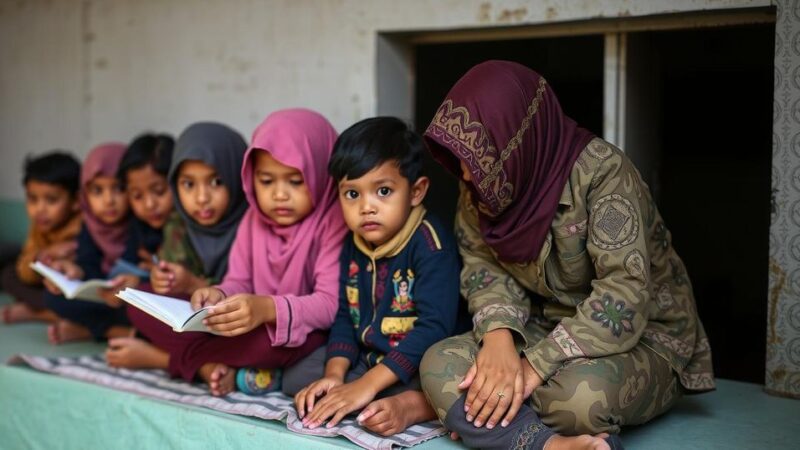Turkey has vehemently rejected a proposal for French troops to be stationed along the Syrian border, which it views as a threat due to the association of the Syrian Democratic Forces (SDF) with terrorism. Turkish officials, including Foreign Minister Hakan Fidan, have criticized the intentions of European countries, asserting that any engagement in Syria should be conducted independently of American influence. Turkey warns of potential military action against the SDF if demands for the withdrawal of foreign fighters are not met.
Turkey has expressed strong disapproval of a proposal that suggests deploying French military forces along its border with Syria. This initiative aims to create a secure zone to mitigate tensions with the Syrian Democratic Forces (SDF), an entity that Turkey labels as a terrorist organization. Turkish Foreign Minister Hakan Fidan emphasized during a recent press conference that certain European nations are attempting to exploit the situation for their own gain by aligning with American interests. He stated, “We do not engage with countries that try to hide behind America’s power while advancing their own agendas.”
Furthermore, Turkey has issued warnings regarding a potential military incursion into northeastern Syria targeting the Kurdish YPG militia, which is affiliated with the SDF. Fidan underscored that all foreign personnel associated with the SDF, especially members of the PKK, must exit the region, irrespective of their nationality. Despite the absence of an official proposal from France to guard the Turkish-Syrian border, French President Emmanuel Macron recently confirmed France’s commitment to the SDF amid the ongoing civil war in Syria.
In response, Ilham Ahmed, a senior Kurdish official, suggested that the United States and France could be pivotal in securing the border zone. However, Fidan insisted that Turkey would only consider French insights on the Syrian situation if France demonstrated autonomy in its military activities, independent of US support, including conducting operations and establishing bases. He critically stated, “If France intends to act in Syria, it ought to first repatriate, prosecute, and imprison its own citizens who are terrorists held in Syrian camps.” This remark addressed longstanding concerns about the handling of IS detainees by France, which has relied on the SDF for operational support.
The context of the current tensions revolves around Turkey’s concerns regarding the Syrian Democratic Forces (SDF) and its affiliate, the YPG militia, which Turkey categorizes as terrorist organizations due to their connection with the Kurdistan Workers’ Party (PKK). The PKK has been engaged in a decades-long insurgency against the Turkish state, leading to heightened scrutiny of Kurdish influences in Syria. Military proposals involving foreign troops, specifically from France, have been met with resistance from Turkey, particularly amidst the backdrop of the civil war in Syria and the struggle against the Islamic State (IS).
In summary, Turkey’s opposition to the potential deployment of French troops to the Syrian border arises from concerns over national security, particularly with regard to the SDF and the YPG. Turkish officials assert the need for foreign engagement in Syria to be undertaken independently, emphasizing accountability in dealing with terrorist threats. The discourse underscores the intricate dynamics of international military involvement in the region, reflecting Turkey’s strategic interests and apprehensions about foreign alliances with Kurdish groups.
Original Source: www.middleeasteye.net







